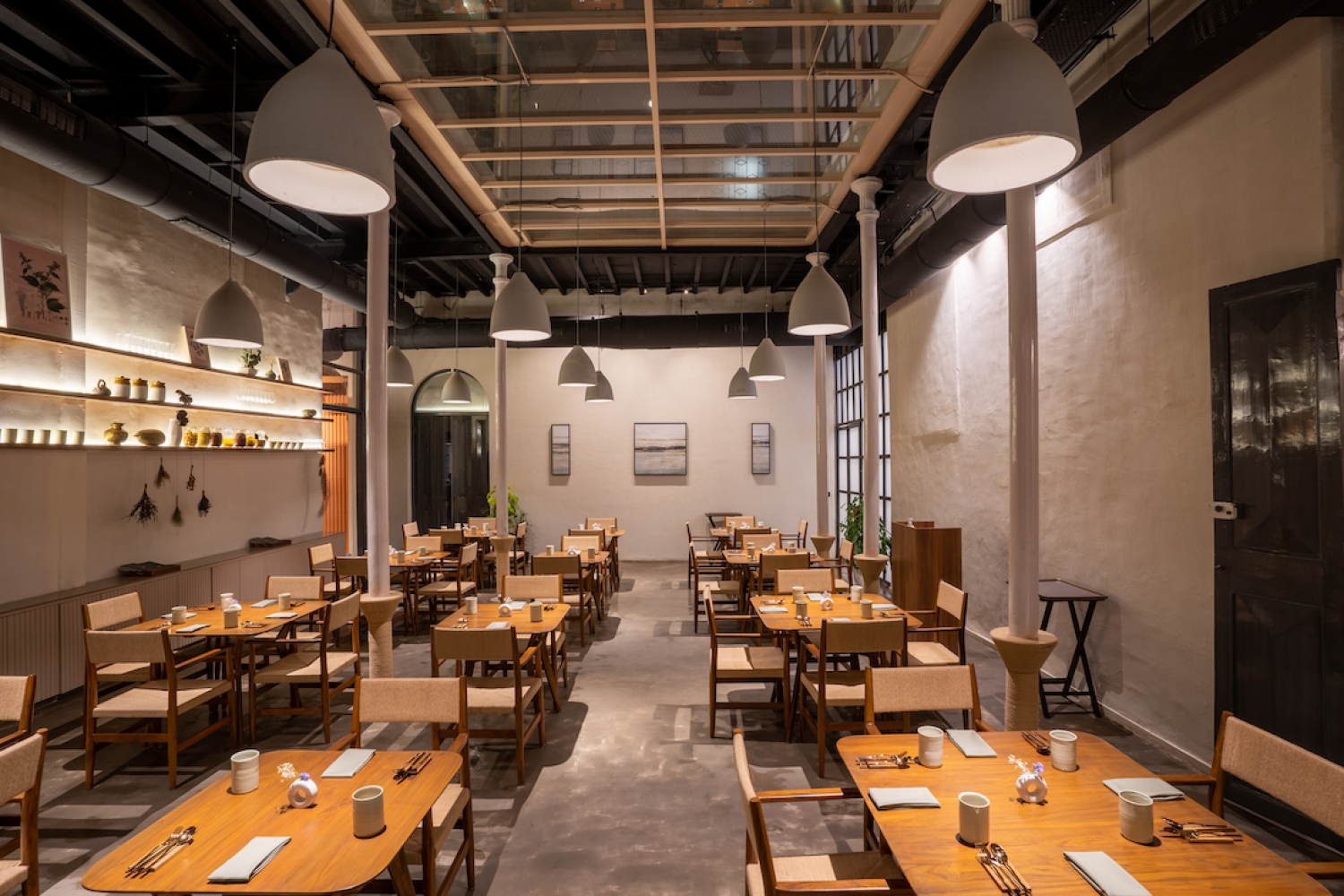

Tucked in a quiet boulevard in Azad Maidan in Mumbai’s Fort neighbourhood, is Ekaa, an elegant, fine-dining restaurant. Poised to become a culinary marvel, this month-old outfit is situated inside Kitab Mahal, a charming building that has stood tall for over a century. More often than not, a restaurant’s décor and culinary language are dictated by a specific regional cuisine. Ekaa daringly upends that. It allows seasonal produce to take center stage, where thoughtfully-curated dishes are inspired by myriad cultures and experiences, and brought to life using non-traditional techniques.
At its helm is head chef and co-founder, Niyati Rao who envisioned and fashioned the restaurant into existence, after teaming up with restaurateur and long-time friend, Sagar Neve, who has a decade worth of experience under his belt. Rao has a strong repertoire herself, having been recruited by some of the country's finest restaurants, including Wasabi by Morimoto and A Reverie. She had a brief stint at the celebrated 3-starred Michelin restaurant, Noma in Copenhagen, before the lockdown shipped her back to India. That is when she began conceptualizing Ekaa, which in her words, is an “ode to my motherland.”
At its helm is head chef and co-founder, Niyati Rao who envisioned and fashioned the restaurant into existence, after teaming up with restaurateur and long-time friend, Sagar Neve, who has a decade worth of experience under his belt. Rao has a strong repertoire herself, having been recruited by some of the country's finest restaurants, including Wasabi by Morimoto and A Reverie. She had a brief stint at the celebrated 3-starred Michelin restaurant, Noma in Copenhagen, before the lockdown shipped her back to India. That is when she began conceptualizing Ekaa, which in her words, is an “ode to my motherland.”
Everything served at Ekaa is a play of theatre and illusion. Having a sweet spot for dessert, let me begin there. ‘Succulent’ is an avocado-based ice-cream, a well-rounded sculptural beauty that mimics the fresh lushness of a plant. ‘Cacao’, which is found on the a la carte menu, is a billet-doux to all the lovers of chocolate. The dessert sings of rich cocoa offered in different layers, textures and contours. The tapas menu has a variety of bite-sized wonders, including the ‘House Sausage’, a solitary, flavorful piece of pork, elegantly glazed in honey. At Ekaa, the sea urchin is a prized feature. Considered a noted delicacy world over, it is specially harvested in Madurai and flown to Mumbai for Ekaa’s guests. ‘Tomato, Tomato!’ is a dish birthed from nostalgia. It’s an experimental play on the childhood memory of the humble soup served with bread on the local Indian trains.
The restaurant takes pride in its uncluttered design and seating arrangement that is accented by simple ceramic dinnerware and locally-sourced wooden furniture. The space’s restrained palette is anything but monotonous, yet it serves the sole purpose of ensuring that all our senses focus on the one important task at hand: to eat.
Text Radhika Iyengar
Date 26-01-2022
The restaurant takes pride in its uncluttered design and seating arrangement that is accented by simple ceramic dinnerware and locally-sourced wooden furniture. The space’s restrained palette is anything but monotonous, yet it serves the sole purpose of ensuring that all our senses focus on the one important task at hand: to eat.
Text Radhika Iyengar
Date 26-01-2022